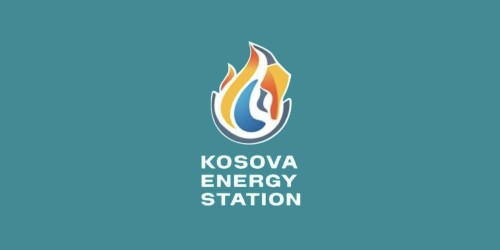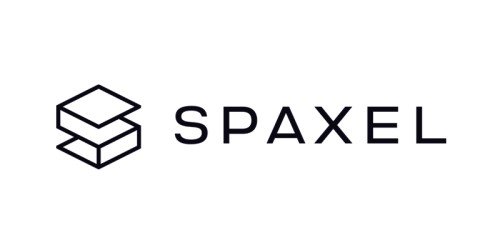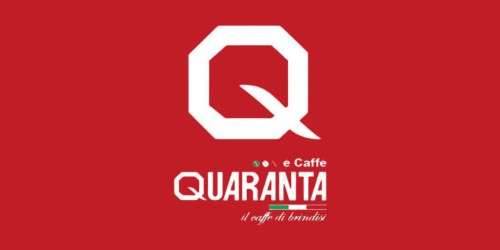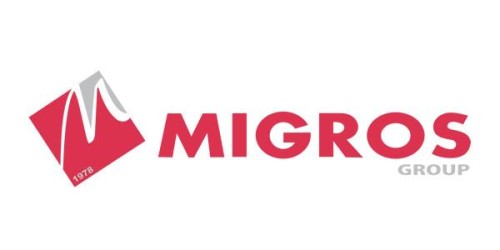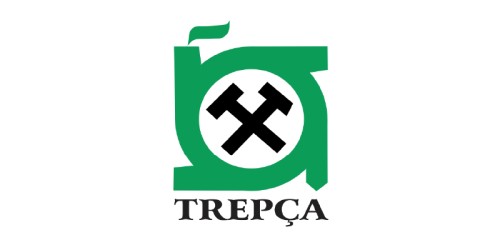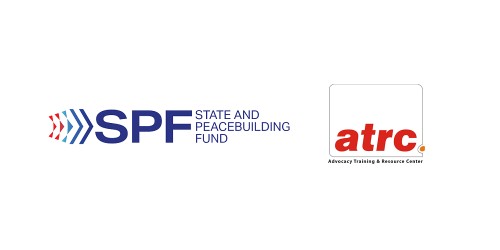
TERMS OF REFERENCE (TOR)
EXTERNAL EVALUATION OF THE PROJECT:
“Protecting and promoting labour rights of vulnerable groups in the labour market”
| Project number | 2021/430-829 |
| Implementation period: | 01.01.2022 – 31.12.2023 |
| Field of activity: | Labour rights |
| Implementation country: | Kosovo |
| Donor: | European Commission |
| Geographical coverage: | Kosovo |
| Project name: | “Protecting and promoting the rights of workers from vulnerable groups in the labour market” |
| Implementing Partner: | Advocacy Training and Resource Center (ATRC), Balkan Investigative and Reporting Network (BIRN), and the Sub-grant scheme partners (Handikos Mitrovica, Ngo Zana, Advocacy Center for Democratic Culture, Ngo Durmish Aslano, Organization for legal and social research, Social housing and property rights in Kosovo, Center for psycho-social and medical research, Society for education and entrepreneurship development, Kosova's organization of medical students, Institute for research and human rights, Future development centre, Liza-r, Avoko, Kosova Association of the Blind, Kosovo 2.0, Institute Qika, Fol movement, Economic bulletin ltd, Ngo Divine women and Proconsulting service) |
| Target groups: | Workers, Employers, Justice Institutions (the Court, State Prosecutor, Police, Ombudsperson), Labour Inspectorate, Tax Administration Media in Kosovo, Social- Economic Council, local CSOs, non-formal groups, human rights activists, potential future employees. |
| Type of Evaluation | External evaluation |
| Timing of Evaluation | Closing phase |
BACKGROUND INFORMATION
The Advocacy Training and Resource Center (ATRC) is a Kosovar non-governmental and non-profit organization. Its vision is to create an enabling environment that fosters democratic resilience and active citizenry. ATRC’s mission therefore is to increase citizen and civil society participation in decision-making, in order to promote democratic values and norms.
The achievement of the vision and mission of the ATRC, are facilitated by three overall objectives of the organization:
- Support citizen and civil society participation in decision-making process through development of capacities:
- Strengthen citizen and civil society participation in decision-making process through community activities that foster resilience, and
- Facilitate citizen and civil society participation in decision-making process through.
These three overall objectives form the three main programs of the ATRC, and are centered on the core of the mission of the organization, which is to increase citizen and civil society participation in decision-making process. Moreover, since 2006, ATRC has administered and distributed more than 300 grants to non-governmental organizations in Kosovo within the Grant Administration Program. Supported projects have largely addressed human rights, property rights and inheritance, labour rights, gender issues, court monitoring and awareness raising for access to justice, among other pressing issues. Reports, analyses and documents produced by partner organizations highlight the limited progress of Kosovo Institutions in respecting fundamental human rights, property rights, labour law, and inheritance inequalities. As a result, capacity building of state institutions, non-government organizations and journalists, as well as public awareness and advocacy for the implementation of legal duties and obligations, continue to need attention in Kosovo.
Meanwhile our partner, BIRN Kosovo is an independent, non-governmental organisation, whose goals are providing information to the citizens and contributing to the democratic transition process in the country, promoting accountability, rule of law and policy reform.
BIRN Kosovo in particular aims to serve as a watchdog of public institutions, monitoring the work of governing and public institutions and supporting their reform and their path towards meeting the criteria and standards of the European Union. In addition, through the production of quality and impartial TV debates and training of youth on argumentation and debating skills, BIRN aims to promote and encourage a culture of debate in Kosovo.
BIRN’s vision is to secure its position as the premier Kosovo investigative and analytical journalism organisation, addressing the need for objective, quality, sustainable reporting on the country’s many challenges in the arena of politics, economics and EU integration.
1. PURPOSE OF THE EVALUATION
The main purpose of the evaluation is to provide an independent assessment of the progress of the project, through an analysis of the relevance, effectiveness, efficiency, management arrangements and impact of the project. The evaluation should give furthermore a brief outlook on the potential future impact of the project and sustainability.
The specific objectives of the closing phase evaluation are the following:
- Assess the relevance of the project’s design, regarding country needs and how the project is perceived and valued by the target groups.
- Evaluate the relevance of the project to address the labour rights concerns and situation for marginalized groups in Kosovar municipalities. It will also assess the relevance of the stakeholders targeted by the intervention and the methodologies and approaches to do so.
- Identify the contributions of the project to improving the labour rights for the marginalized groups and its synergy with the overall project objectives.
- Assess the effectiveness of the project at achieving its objectives and provide clear insights about what has and has not worked so far and why, including unexpected results and factors affecting project implementation (positively and negatively).
- Assess the efficiency in terms of value for money of the delivery of the outputs.
- Briefly assess and give a general outlook on the potential impact of the project.
- Identify lessons and provide a set of actionable recommendations on how the project and the project coordination/management could be adjusted for further improvement and to strengthen the delivery of results.
- Provide strategic recommendations for the different key stakeholders to improve the implementation of the project activities and attainment of project objectives.
Recommendations emerging from the evaluation should be strongly linked to the findings of the evaluation and should provide clear guidance to stakeholders on how they can address them. It is expected that the findings and recommendations of this mid-term review will help to identify any needed course corrections in the project’s approach and activities and bring valuable external reflections to help strengthen the project and complement the MEAL system of the project through an adaptive management modality.
2. BRIEF DESCRIPTION OF THE PROJECT INTERVENTION
The project “Protecting and promoting the rights of workers from vulnerable groups in the labour market” is funded by the EU and managed by the European Union Office in Kosovo. The project is implemented by the Advocacy Training and Resource Centre (ATRC) in partnership with the Balkan Investigative Reporting Network (BIRN Kosovo).
The overall objective of the project: is to improve working conditions for the most vulnerable categories of employees, with particular emphasis on the private sector, including health and safety at work for women and men, through the promotion of social dialogue between employees and employers or relevant institutions. In addition, the project aims to advance the harmonization and implementation of legal acts in the field of labour by directly monitoring and reporting cases of labour rights abuse; strengthening the capacity of employees and NGOs to work on labour rights; and raising public awareness with regard to the Law on Labour.
The 7 outputs of the project are as follows:
- Approx. 100 cases of labour rights abuses are reported on KALLXO.com;
- 30 joint inspections with TAK and the Labour Inspectorate are carried out;
- 30 cases of complaints are monitored;
- Up to 20 sub grants are distributed to groups working on and promoting labour rights, reaching over 5,000 employees;
- Duty bearers are trained on handling labour rights cases and public communication;
- Over 1 million people are reached through TV, online and social media channels through media reports on labour rights; in-house and scholarships provided
- Concrete recommendations provided to relevant institutions on necessary changes to legislation concerning labour rights.
3. SCOPE & FOCUS OF EVALUATION / EVALUATIVE QUESTIONS
3.1. SCOPE OF THE EVALUATION
The close phase evaluation will analyze all planned outputs and outcomes under the project within the implementation period with particular attention to synergies between the components and contribution to raising awareness towards labour rights issues and violations in Kosovo.
The evaluation will discuss, throughout the evaluation questions, how the project is addressing its main issue (i.e., labour rigths) and the cross-cutting themes including conflict sensitivity, gender, partner support and participation. The evaluation should help to understand how and why the project has obtained or not the specific results from output to potential impacts, how changes in the context have influenced progress, and what adjustments are needed.
Furthermore, the evaluation process will assess the implementation phase (24 months) of the “Protecting and promoting the rights of workers from vulnerable groups in the labour market” project activities conducted and implemented during the period 2022 – 2023 to provide improvements based on the findings from the field and support further project implementation recommendations/phase.
The evaluation experts/service provider is not allowed to share any information and/or evaluation results without prior notification to the ATRC project management staff. The service provider will sign a copy of the Code of Conduct document and attach it as Annex to the service agreement.
3.2. EVALUATIVE QUESTIONS & FOCUS
Concerning the four criteria (Relevance, Effectiveness, Efficiency, and Impact), the following questions are of special interest:
3.2.1 Relevance
- How appropriate and relevant is the project towards alignment with the national and international policies on labour rights?
- How consistent are the activities and outputs with the intended effects?
- Is the project relevant to the identified needs of beneficiaries (target group of project)?
3.2.2. Effectiveness
- To what extent has and will the labour rights project deliver on its outputs and outcomes at Kosovo regional level to date? Were there any positive unintended consequences or unexpected effects?
- How effective has the project been so far in developing methodologies to raise awareness on labour rights matters?
- For all the above questions, what are the factors influencing positively and negatively the effectiveness of the project?
3.2.3 Efficiency
- To what extent are the project outputs in balance with the level of effort, time and resources spent?
- To what extent spending and project delivery progress according to the planned schedule?
- How much has the project management adapted to any changing condition to improve project implementation efficiency?
- To what extent has the project built on existing agreements, initiatives, data sources, synergies and complementarities with other projects, partnerships, etc. and avoided duplication of similar activities by other groups and initiatives?
- Which alternative approaches could have led to equivalent results at lower costs?
3.2.4 Impact
- To what extent does the project have the potential to have made a serious contribution to the overall goal of the project by the project's end?
- The evaluator is requested to give a general and forward-looking assessment of the Impact question only.
4. EVALUATION METHODS AND PROCESS
The evaluator(s) is expected to develop an evaluation framework based on the suggested key evaluation questions above but may suggest additional questions or modifications. All data collection tools are to be included as annexes to the final evaluation report. To collect the data for analysis, the evaluation will make use of the techniques listed below (but not limited to).
- Review of relevant documentation from the project (documents to be shared once the evaluator has been selected).
- Desk review: project design and strategy documents, activity documents, communications, research and publications.
- Key informant interviews and focus groups: with project staff, tripartite constituents, beneficiaries of the project and potentially other stakeholders and partners.
At the end of the fieldwork the external evaluator(s) will present preliminary findings to the project's manager to discuss and refine the findings and fill information gaps. The data and information should be collected, presented and analyzed with appropriate gender, ethnicity and where feasible in terms of disability disaggregation, even if the project design did not take those into account.
5. DELIVERABLES
5.1 First draft of Evaluation Report – The report should be no longer than 30 pages excluding annexes. The Project Manager will review the first draft of the report, to ensure that it meets the required quality standards and covers all agreed components and contents. Detailed comments and feedback on the draft report will be provided to evaluation consultant(s) and discussion may be held to provide clarifications as necessary. The evaluator(s) should submit a comprehensive draft report consisting of major findings and recommendations for future courses of action.
5.2 The final version of the evaluation report will be produced by the evaluation consultant(s) based on feedback received on the draft report, incorporating comments received from the Project. The report should be no longer than 30 pages excluding annexes. The final draft report should be submitted within the given timeline with enough detail and quality.
The draft and final versions of the evaluation report will be written in English (maximum 30 pages plus annexes).
6. SCHEDULE
This assignment is anticipated to take place between 11.12.2023 - 31.12.2023. The total duration of the evaluation process is estimated to be 10 working days for the evaluator.
Table 4: Evaluation Timetable and Schedule
| Meeting with the Project Manager | ATRC and BIRN | 1 Day |
| Desk Review | External Evaluator(s) | 1 Day |
| Field visits/Interviews/Focus groups | External Evaluator(s) | 3 Days |
| Analysis of collected data | External Evaluator(s) | 2 Days |
| Finalize Report | External Evaluator(s) | 3 Days |
7. EVALUATOR / QUALIFICATIONS
Education:
- Master’s degree in one of the following relevant fields: Sociology, Economy, Public, Law Management, Management or other related field.
Work Experience:
- At least 5 years overall professional experience as an evaluator with international and local organizations.
- Proven experience with logical framework approaches and other strategic planning approaches, M&E methods and approaches, information analysis and report writing.
- Extensive knowledge of, and experience in applying, qualitative and quantitative research methodologies.
- Strong interpersonal and communication skills.
- Strong analytical, reporting and writing abilities.
- Excellent speaking and presentation skills.
Language requirements:
- Excellent spoken and written Albanian and English language skills required. Other local languages, in particular Serbian, are considered an asset.
8. BUDGET
This assignment foresees a total of 10 days for the one evaluator, to cover the whole evaluation process.
The daily fee for the evaluator is EUR 150 (Gross).
The project will not pay any additional costs/expenses that may arise from the evaluation process except the financial amount presented and agreed on in the service agreement with the evaluator(s).
9. DOCUMENTS TO BE SUBMITTED
- CV of the applicant(s)
- Portfolio/ List of previous evaluation report provided (if any);
- 1 reference of previous work.
7. DEADLINE FOR SUBMISSION:
Those interested may apply via email: [email protected] , until 07.12.2023. Applications submitted after the deadline will not be considered.

-thumbnail.jpg)

